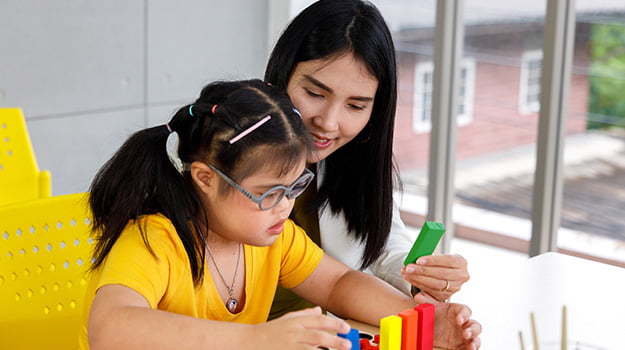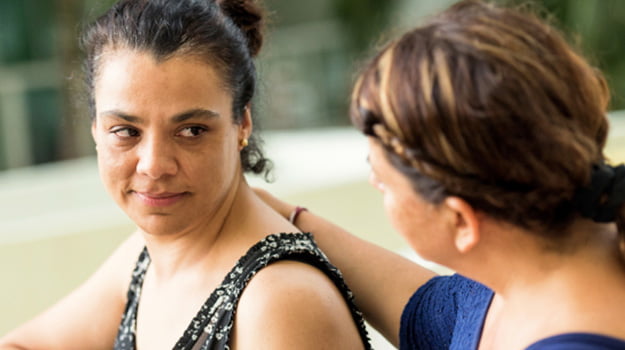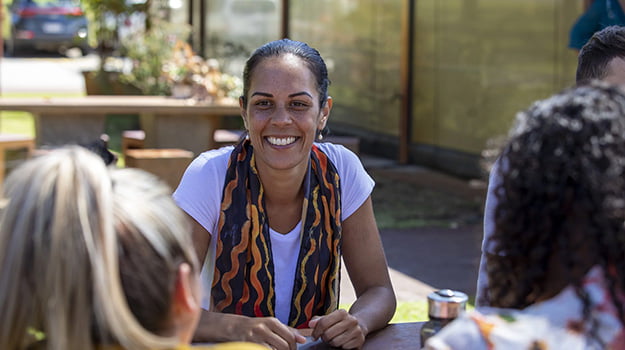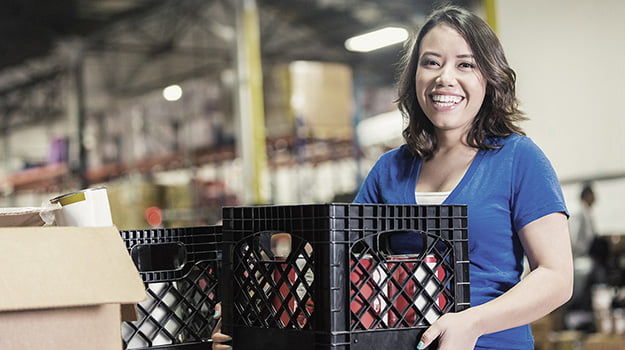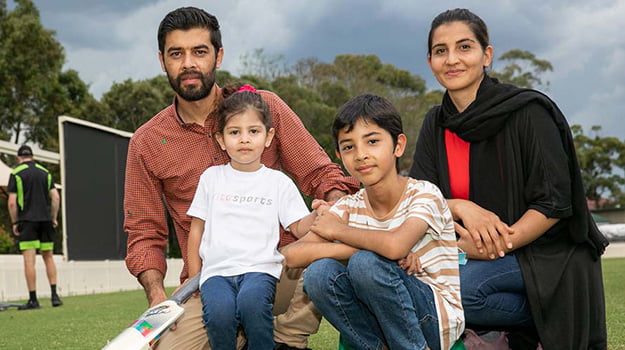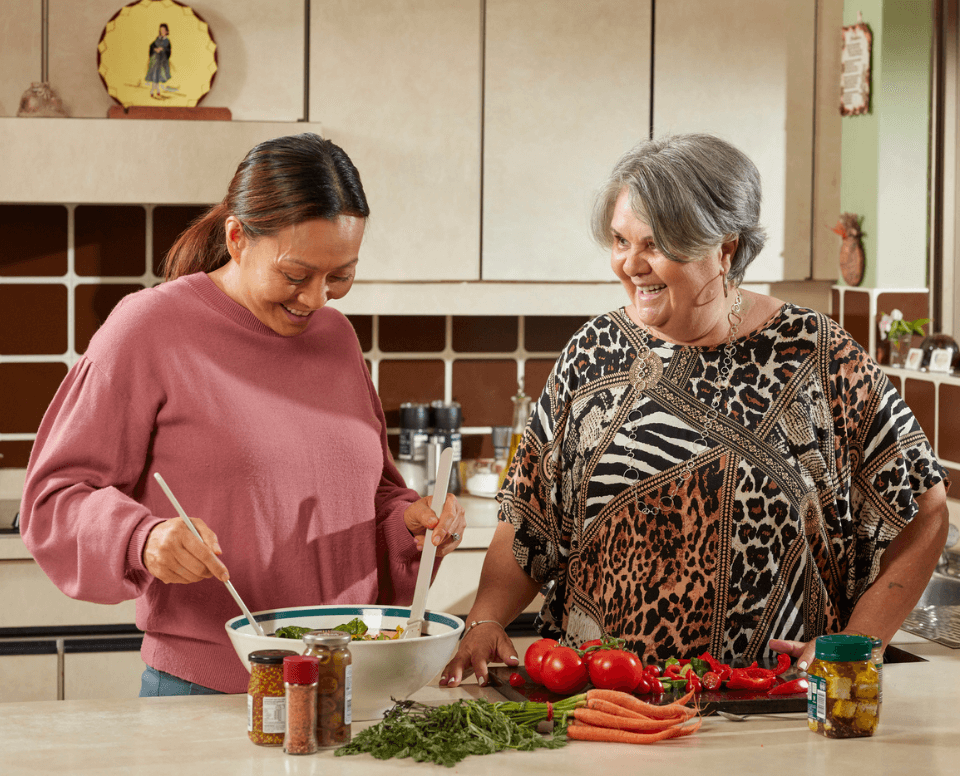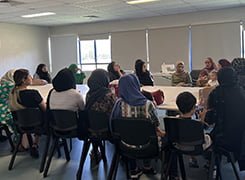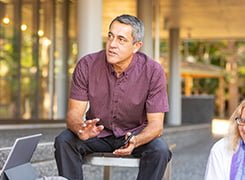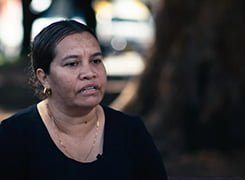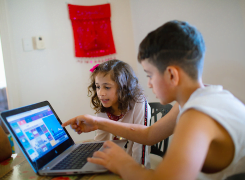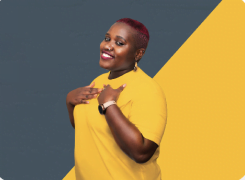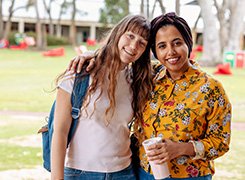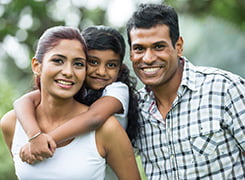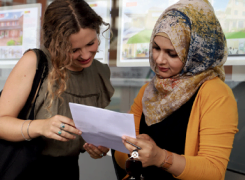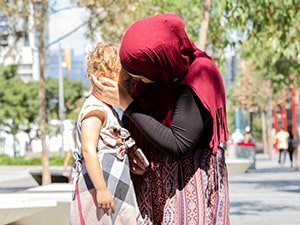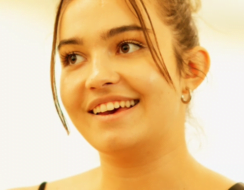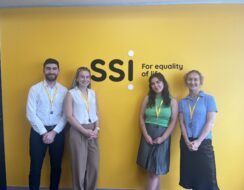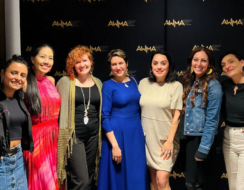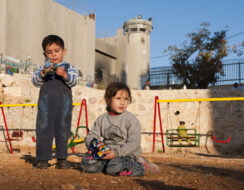28 Sep 2015
NewsSydney Writers Festival: young refugees tell their stories
A young participant and volunteer at the Sydney Writer’s Festival My Story workshop.
By participating in the workshops SSI sought to contribute the unique insight about the journeys of children who are refugees or are currently seeking asylum in Australia, told by the children themselves.
SSI, seeing how participation in the arts can improve people’s quality of life, seeks to provide arts and culture opportunities that enhance new arrivals’ wellbeing, foster community participation and build capacity within individuals and communities.
The partnership with the Sydney Writers’ Festival is part of SSI’s Arts and Culture program for 2015. Jeanmarie Morosin, head of children’s programs for the Sydney Writers’ Festival, said the idea was to gather children’s life stories from across Western Sydney, across time.
“Carolina Triana, SSI’s Arts and Culture Coordinator, approached us and, as luck would have it, last year we started our first children’s festival in Western Sydney,” she said. “My Story is in its first year and, because we are trying to capture the voice of kids, these children were a perfect fit.”
Ms Morosin said a selection of the children’s stories, which are being created during the September school holidays, would be published on the Sydney Writers’ Festival website as part of the Children’s Festival of Moving Stories in November.
“We will continue to add stories to the website in coming years, creating an archive of the changing lives of children across Western Sydney,” she said
.
The My Story workshops at Bankstown Arts Centre were facilitated by well-known children’s book authors with the support of dedicated, experienced volunteers. It was the volunteers’ role to sit with the children and support them.
Tracey Henderson, in her fifth year as a volunteer for the Sydney Writers’ Festival, said she was excited to see everyone’s creativity.
“My intention is to help ensure everybody gets to do what they want to do — the kids and the facilitators.”
Ms Henderson said, “I think it’s really important for people to listen to kids tell their own stories. The big challenge is being able to hold back and listen. If kids are able to tell their stories, that’s half the way. The other half is that the people whose role is to listen actually do listen.”
Respect and empowerment

An illustration drawn for the My Story project. Illustration by Matt Huynh.
Jess Andrews, a case manager in SSI’s families team, had seven children from her caseload attending the morning session on September 21. She said they had seen a lot and been through a lot. All had been in detention, all came on a boat and all had different experiences in their home countries, with overlapping traumas.
Ms Andrews said trauma didn’t always negatively affect people; it could strengthen and grow people too. Some of the kids were super-resilient, she said, and some mightn’t even seem like they had been through trauma. The best way to work with them was from a strength-based perspective, she said.
While the children could speak English well, writing and spelling was still difficult for some. Ms Andrews said the important thing was to validate the children and treat them with respect for what they had been through. They would then feel empowered to tell and own their stories, she said.
Ms Andrews said it was generally a good sign if children were prepared to share even their stories of trauma: it was a part of who they were.
Morning sessions targeted children aged 6-11 years and the afternoon sessions targeted young people aged 12-15. Stories could be written, fully-illustrated or a combination of both.
One facilitator was Belinda Murrell, whose 22 books include The Sun Sword Trilogy and the Lulu Bell series about friends, family and animal adventures. Her new book, The Sequin Star, is set in a circus in the 1930s.
She said she was really excited to be part of the workshop.
“I’m really looking forward to hearing the kids’ stories and getting to know them and hearing about their lives. I think it’s very important for kids to be able to tell their stories, think about their stories and share their stories.”
Ms Murrell was hoping to make it a fun day and a special day the children would remember for a long time.
Better understanding

The writing’s on the wall: refugee children have important stories to tell.
Ms Murrell said she and fellow facilitator Andrew Canna had been heavily involved in the Sydney Writers’ Festival programs and in running workshops.
“When Jeanmarie invited us we jumped at the chance.”
She previously had been involved in visiting schools and libraries and talking with refugee kids, and was always fascinated to hear their stories.
“I think it’s a great opportunity for me to do something that might be able to help and I’m just looking forward to getting a better understanding of what the children have been through and where they’ve come from.”
Andrew Cranna is an author, illustrator and educator, whose first graphic novel, The Bloodhound Boys: The Great Blood Bank Robbery, was shortlisted by the Children’s Book Council of Australia for the Crichton Award for New Illustrators. He also illustrates for The School Magazine, published by the NSW Department of Education and Communities, where his brand of zany humour makes teaching and learning activities accessible and fun
.
Mr Canna said, “I think today, with what is happening around the world, it is important that people in Australia learn about the stories of what the children have been through because it is happening all around the world but a lot of people in Australia don’t really know about it.
“I think all children, no matter where they are, can draw and tell stories and combining the two is certainly fun. I’d like them to do lots of drawings about where they are from, how they got here, where they are now and perhaps what their thoughts are about the future.”
Andrew and Belinda made the workshop fun and interactive. They started by introducing their lives as writers, showing that it was okay to put themselves out there, and ran some exercises to get the children thinking about their stories.
The children drew self-portraits, attempted other drawings and moved on to planning their story and getting their ideas down. The main thing, said Ms Murrell, was that it was fun and enjoyable for the kids and that the kids felt comfortable sharing their stories.
Sydney Writers’ Festival Children’s Festival of Moving Stories will run across Greater Western Sydney throughout November, featuring free events for children and schools.
The My Story website, where the children’s stories will appear, will be launched on November 2.
SSI thanks Jess Andrews for her support in this project and partners Bankstown Arts Centre and Sydney’s Writers Festival – Children’s.

